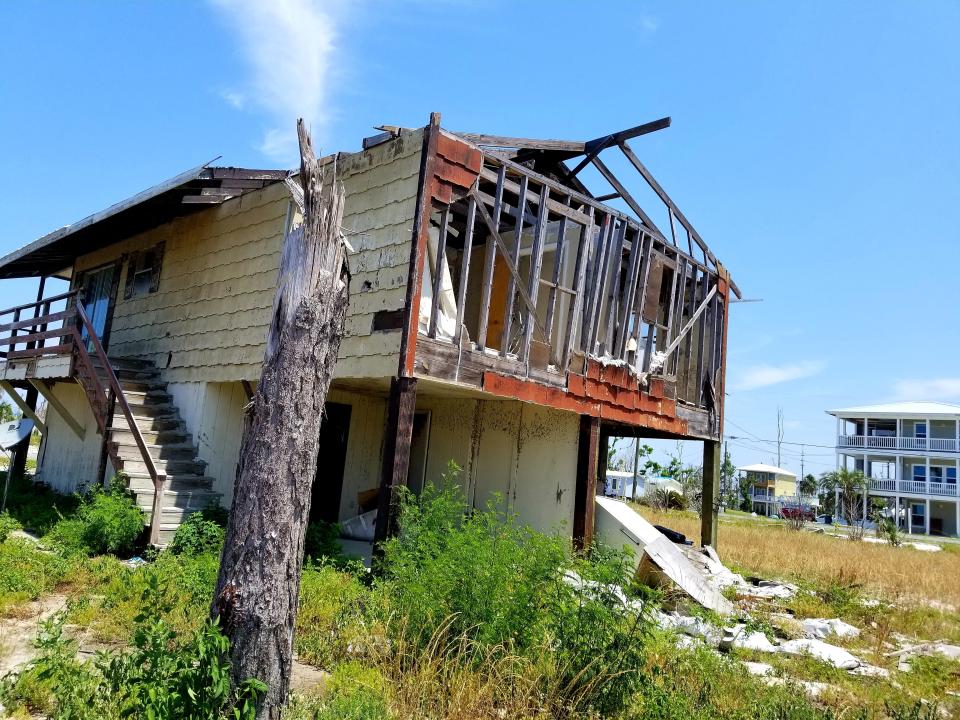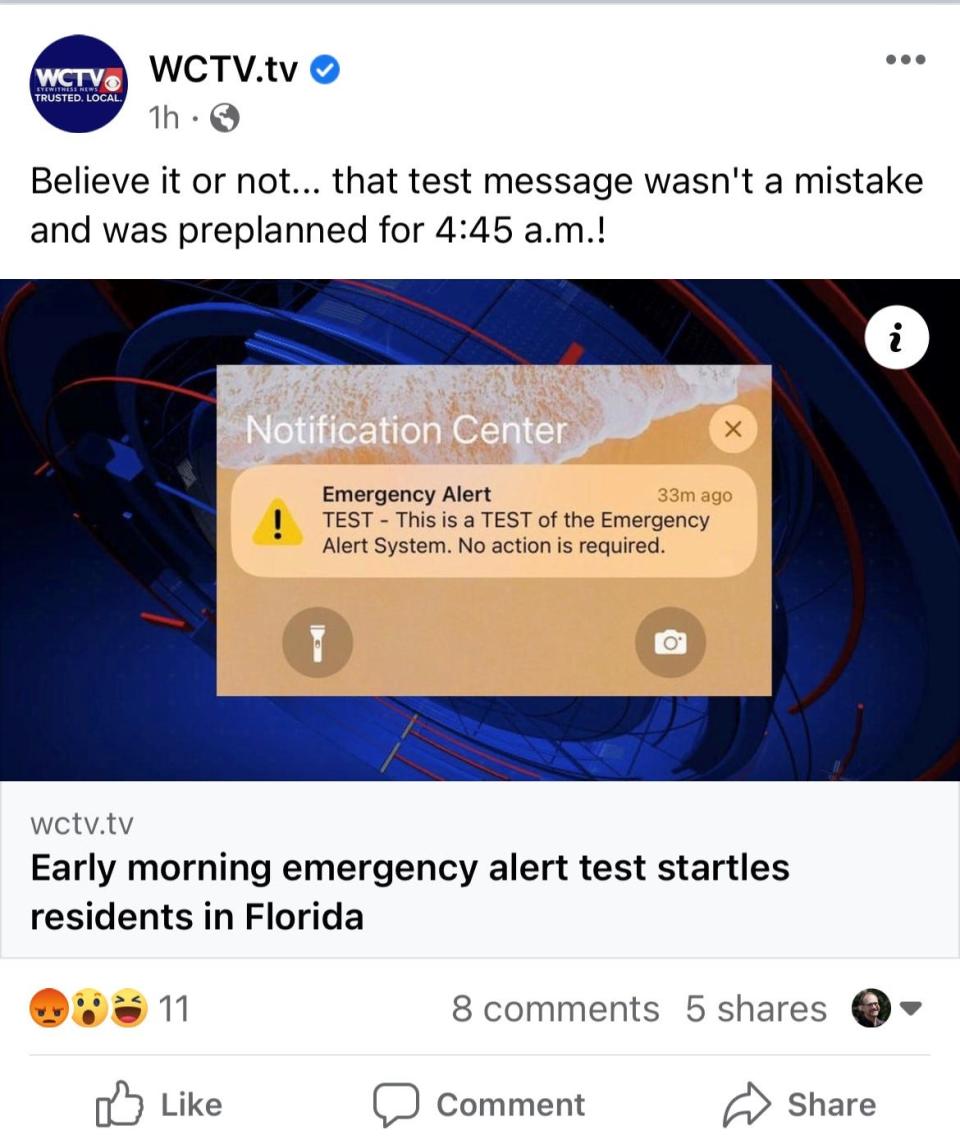'Completely inappropriate': Florida state leaders respond to accidental early morning emergency alert
- Oops!Something went wrong.Please try again later.
State leaders are voicing anger and concern over an accidental emergency alert that buzzed Floridians awake early Thursday morning, alleging the annoying alarm call could force residents to turn off phone alerts altogether and, potentially, cost lives.
After the rude awakening at 4:45 a.m. Eastern Standard Time, angry Floridians posted to social media and explained how to turn off alerts on Androids and iPhones. It took four hours before the government admitted the alert was a mistake.
State leaders are worried the damage has already been done, and Floridians, who have turned off their alerts, will be at risk when a serious threat actually happens.
I’ve ordered FL Division of Emergency Management Director Kevin Guthrie to bring swift accountability for the test of the emergency alert system in the wee hours of the morning. This was a completely inappropriate use of this system.
Stay tuned.— Ron DeSantis (@GovRonDeSantis) April 20, 2023
On Twitter, Gov. Ron DeSantis told residents to "stay tuned," six hours after the alert.
"I’ve ordered FL Division of Emergency Management Director Kevin Guthrie to bring swift accountability for the test of the emergency alert system in the wee hours of the morning. This was a completely inappropriate use of this system," DeSantis tweeted.
Christina Pushaw, who runs a rapid-response organization for the governor, called the mistake "a very stupid thing to do."
Early morning emergency alert: Florida emergency officials apologize. Here's what we know
"If you insist on abusing the system to override people’s settings about test alerts at 4:50 AM every 2 months, the result is Floridians will turn off ALL alerts. Right in time for hurricane season. Someone needs to get fired over this," she tweeted Thursday morning.
🙄 @FLABroadcasters very stupid thing to do. Time to fix it and apologize. If you insist on abusing the system to override people’s settings about test alerts at 4:50 AM every 2 months, the result is Floridians will turn off ALL alerts. Right in time for hurricane season. Someone… https://t.co/1xtLfNRpw1
— Christina Pushaw 🐊 🇺🇸 (@ChristinaPushaw) April 20, 2023
Florida emergency officials concerned for safety as people turn off alerts
A representative from the U.S. National Weather Service in Tampa urged emergency management partners to discourage people from turning off alerts on their phones.
"Deactivating alerts can prevent people from receiving critical, life-saving weather warnings from the National Weather Service," wrote Meteorologist and Aviation Services Team Lead Austen Flannery. "These weather warnings can often occur when people are sleeping."
The alert occurred on the phones of even for those who had "Test Alerts" turned off in their phone's notification settings, which allows users to turn on and off Amber Alerts, Emergency Alerts and Public Safety. Turning off alerts entirely could result in a deadly outcome: already this year has seen a startling number of tornado deaths, with some of those cyclones tearing through towns in the middle of the night.
A tornado warning, a flash flood warning and storm surge warnings are some of the alerts that will be sent to phones via the Wireless Emergency Alert system during a severe weather event, said Lance Franck, a NWS meteorologist in Tallahassee.
"In advance of Michael, folks that were in evacuation zones, where there was a danger of life-threatening inundation of storm surge, they were sent wireless emergency alerts," Franck told the USA TODAY NETWORK. "Based on the feedback from local emergency management, many lives were saved."

Franck stressed the importance of keeping the alerts on your phone year-round because the Southeast, including Florida, are always at risk of severe weather, especially during overnight hours.
What happened with the test alert that rang across Florida on Thursday morning
The test alert, scheduled by the Florida Department of Emergency Management and the Florida Association of Broadcasters, was supposed to be on televisions, not on phones, according to a tweet by DEM.
The 4:45 a.m. test is also scheduled for every other month, according to FAB.
"We know a 4:45 a.m. wake up call isn't ideal. @FLSERT wants to apologize for the early morning text," tweeted the department at 8:40 a.m., almost four hours later.

"We are taking the appropriate action to ensure this will never happen again and that only true emergencies are sent as alerts in the middle of the night," the department continued.
There was widespread confusion through the early morning before state officials acknowledged the mistake. That led some TV stations to conclude the test was legit and tied to the Florida Association of Broadcasters schedule, which had a test scheduled for 4:50 a.m. April 20.
Some even encouraged people to shut off alerts if they didn't want future pre-dawn interruptions.
This article originally appeared on Tallahassee Democrat: Florida emergency alert 'completely inappropriate,' DeSantis says

